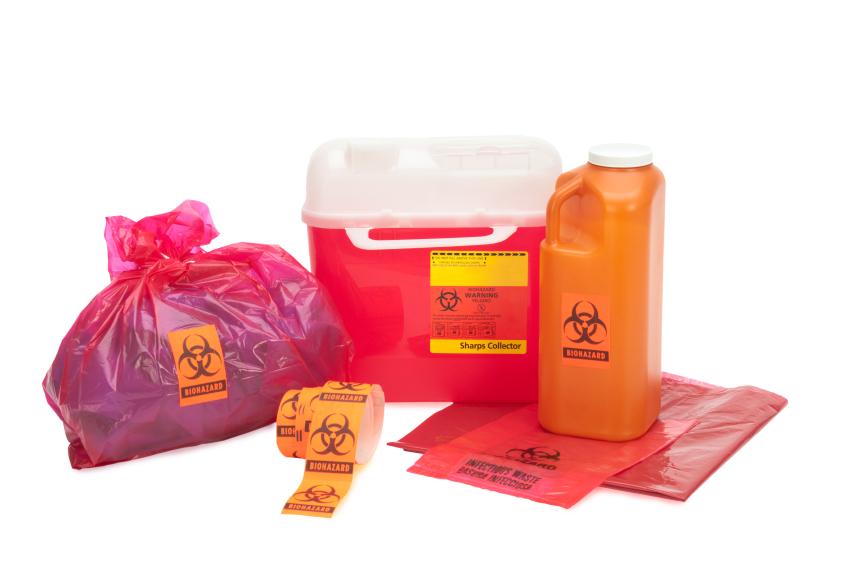Safe and Secure: The Conclusive Selection for Professional Medical Waste Removal Provider
The Significance of Proper Waste Disposal Practices
From the consequences of inappropriate waste disposal on our setting to the lasting ramifications for future generations, the relevance of adopting lasting waste management techniques can not be overstated. By discovering the environmental influence of irresponsible waste disposal, the advantages of recycling initiatives, and the significance of neighborhood interaction in waste reduction efforts, a much deeper understanding of why correct waste disposal practices are vital emerges.
Environmental Effect of Improper Disposal
Improper disposal of waste presents a significant danger to the atmosphere due to its harmful impacts on communities and human health. When waste is not properly handled, it can cause pollution of the soil, water, and air, triggering damage to numerous plant and animal species. click here. Chemicals and toxins from incorrectly disposed waste can leak right into the ground, infecting groundwater sources and impacting the health and wellness of both wild animals and people
Moreover, the accumulation of waste in garbage dumps creates greenhouse gases like methane, contributing to climate adjustment and worldwide warming. Incorrect disposal practices likewise cause littering, which not just degrades the aesthetic value of the environment yet can likewise hurt wild animals via consumption or complexity.
To alleviate these ecological effects, it is vital for individuals and neighborhoods to adopt appropriate garbage disposal methods such as reusing, composting, and liable dangerous waste disposal. By taking these actions, we can aid shield environments, protect natural sources, and protect human health for existing and future generations.
Benefits of Recycling Programs
On a regular basis getting involved in recycling programs uses numerous advantages for both the atmosphere and society as a whole. This conservation of sources not only helps in keeping ecological equilibrium yet likewise adds to sustainable development.
Additionally, recycling plays a vital duty in minimizing power usage and greenhouse gas exhausts. The manufacturing of items from recycled materials generally calls for much less energy contrasted to making from virgin resources - medical waste disposal. Therefore, the carbon footprint connected with the manufacturing procedure is substantially reduced, aiding in the fight versus environment adjustment
Furthermore, reusing programs produce work chances in the recycling sector, advertising economic growth and social welfare. By urging the recycling and reuse of materials, these programs support a round economy that minimizes waste generation and takes full advantage of source efficiency, eventually resulting in a cleaner, greener future for generations to find.
Contaminated Materials Management Guidelines
Applying effective contaminated materials management standards is crucial for decreasing environmental and health and wellness threats connected with the inappropriate disposal of harmful materials - click here. Proper handling, treatment, and disposal of dangerous waste are important to stop contamination of soil, water sources, and air
One trick guideline is correct labeling of hazardous waste containers to make sure secure handling and transport. Furthermore, centers need to follow strict storage space demands to protect against leakages, spills, or crashes that can threaten human wellness and the environment. Regular training programs for workers on contaminated materials management techniques are also vital to make certain conformity with guidelines and advertise a culture of security.
Additionally, unsafe waste should be set apart based on its properties to avoid chemical reactions that can lead to dangerous circumstances. Executing an extensive waste radar can aid monitor the motion of harmful materials from generation to disposal, ensuring openness and liability. By adhering to these guidelines diligently, markets and companies can add to a safer and cleaner atmosphere for future and present generations.
Community Participation in Waste Reduction
To properly deal with the ecological and health threats related to harmful waste administration, engaging the neighborhood in waste reduction efforts is critical. Area involvement plays a vital function in advertising lasting waste monitoring practices and promoting a culture of environmental responsibility. By informing homeowners regarding appropriate waste partition, reusing, and composting strategies, areas can considerably lower the quantity of waste sent out to land fills, thereby decreasing environmental contamination and saving natural deposits.
Area participation in waste reduction programs additionally assists in elevating understanding regarding the significance of waste reduction and encourages individuals to embrace environment-friendly habits in their day-to-days live - medical waste disposal. Collective initiatives between regional authorities, waste administration companies, and area members can bring about the execution of reliable waste reduction techniques customized to the details requirements of each area or town
Additionally, area involvement promotes a feeling of possession and responsibility amongst homeowners, encouraging them to take proactive actions in the direction of minimizing waste generation and advertising a cleaner, healthier setting for future and present generations. By collaborating in the direction of usual waste reduction objectives, areas can make a significant effect on alleviating the adverse results of incorrect garbage disposal practices.

Future of Sustainable Waste Practices
Traditional waste disposal approaches, such as landfilling and incineration, are no longer sustainable in the long term due to their considerable environmental influences. Moving ahead, the future of lasting waste methods exists in welcoming a circular economy method, where sources are reused, recycled, or repurposed to decrease waste generation.
Technological developments play a key function in shaping the future of lasting waste techniques. Advanced waste sorting and recycling technologies can help improve the effectiveness of waste monitoring processes, enabling the recuperation of valuable resources from waste streams. In addition, the adoption of biodegradable materials and composting methods can help minimize the quantity of natural waste ending up in garbage dumps, thus reducing greenhouse gas discharges.
Additionally, promoting customer understanding and education and learning on proper waste segregation and disposal methods is important for driving behavioral change in the direction of sustainability. By fostering a society of waste reuse, recycling, and decrease, communities can jointly add find out here now to a cleaner and healthier environment for future generations.

Final Thought
To conclude, correct waste disposal practices are essential for minimizing environmental effect and promoting sustainability. By carrying out reusing programs, handling contaminated materials properly, and encouraging area participation in waste decrease initiatives, we can function in the direction of a cleaner and healthier atmosphere. It is very important for people, organizations, and governments to prioritize sustainable waste methods for the future health of our earth.

From the effects of incorrect waste disposal on our environment to the long-term implications for future generations, the relevance of embracing sustainable waste monitoring techniques can not be overstated. By exploring the environmental impact of reckless waste disposal, the benefits of recycling campaigns, and the relevance of community involvement in waste reduction efforts, a much deeper understanding of why proper waste disposal techniques are crucial emerges.
By enlightening locals concerning appropriate waste partition, reusing, and composting strategies, neighborhoods can dramatically decrease the quantity of waste sent to garbage dumps, thus reducing environmental air pollution and conserving natural resources. (click here)
Relocating ahead, the future of lasting waste techniques exists in accepting a circular economy method, where sources are reused, reused, or repurposed to decrease waste generation.
Advanced waste sorting and reusing innovations can aid enhance the performance of waste administration procedures, allowing for the recovery of beneficial sources from waste streams.